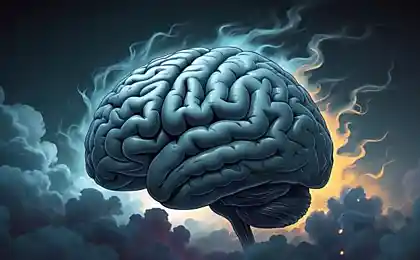266
What is the power of personal beliefs and how to strengthen them
To live according to conscience is to have a character that allows you to act according to your principles. In a world of constant change and information noise, personal beliefs become the anchor that helps to maintain inner integrity and confidently move along the path of life. But what are these beliefs, where do they come from, and how can they be reinforced?
631274
Strong personal beliefs are like an inner compass pointing the right direction even in the most difficult situations.
The Anatomy of Personal Belief
Personal beliefs are not just opinions or preferences. These are deep-seated notions of what is true, valuable, and right. These are the fundamental principles that shape our identity and guide our actions. Unlike superficial opinions, which can change from new information, true beliefs penetrate deeply into the fabric of our personality.
The power of personal beliefs lies in their ability to give meaning and direction to our lives. They serve as a kind of map, helping to navigate moral dilemmas and difficult life situations. When we live according to our beliefs, we experience inner harmony and wholeness—a state that psychologists call “cognitive consonance.”
The origins of belief formation
Our beliefs are shaped by many factors: family upbringing, cultural environment, education, significant life events and personal experience. Some beliefs we learn from parents and other authority figures as children, others we develop through critical thinking and reflection.
Research in cognitive psychology shows that most basic beliefs are formed between early childhood and adolescence. However, this does not mean that beliefs cannot change in adulthood. On the contrary, the ability to review and develop one’s beliefs is a sign of psychological maturity and flexibility.
“A man of conviction is a man who has found words for his existence that do not contradict his actions. ?
- Albert Schweitzer.
Why we need strong beliefs
In today’s world, where the boundaries between truth and disinformation are increasingly blurred and moral guidelines are constantly tested, strong personal convictions become a necessity. They perform several important functions in our lives:
- Ensure stability Beliefs create a solid foundation on which we build our lives and make decisions.
- Make sense. Help us see more than just a series of unrelated events.
- Guide action serve as internal guidelines in situations of moral choice;
- Helping to overcome difficulties give strength and durability during testing periods;
- Form identity They determine who we are and how we perceive ourselves.

Strong beliefs act as a reliable compass in times of uncertainty and change.
Self Diagnosis: How Strong Are Your Beliefs? Ask yourself the following questions to assess the strength of your beliefs:
- Can I articulate my core values and principles?
- Do I consistently follow these principles?
- Am I able to defend my beliefs when they are questioned?
- Am I willing to reassess my beliefs in light of compelling new evidence?
- Do I feel uncomfortable when I act contrary to my beliefs?
Building Personal Beliefs: Practical Strategies
Strengthening personal beliefs is a continuous process that requires awareness and focused effort. Here are some effective strategies for developing and strengthening personal belief systems:
1. Self-knowledge and reflection
The first step to strengthening beliefs is to become aware of them. Many people live by unconscious attitudes inherited from family or society. In order to form truly personal beliefs, it is necessary to take time for deep reflection.
Practical exercise: Take 30 minutes in a calm environment and write down the answers to the questions: “What values are most important to me?”, “What principles do I follow when making decisions?”, “What will I never do, even if it is profitable?”
2. Education and broadening horizons
Strong beliefs are based on deep understanding, not superficial knowledge. Explore philosophical concepts, psychological theories, cultural traditions, and scientific discoveries that can enrich your worldview.
According to research published in the journal Psychological Science, people with a broader outlook and deeper knowledge exhibit a more stable belief system and less exposure to manipulation.
3. Environment and social impact
As the saying goes, “Tell me who your friend is and I’ll tell you who you are.” Our environment has a powerful influence on our beliefs. Strive to surround yourself with people who share your core values, but can offer different perspectives and drive your growth.
Experts in the field of social psychology note that regular communication with like-minded people strengthens confidence in the correctness of their beliefs, while constructive discussions with people of different views help to clarify and develop their value system.
4. The practice of moral courage
Beliefs are strengthened when we have the courage to act on them, especially in difficult situations. Every time we make moral choices in favor of our principles, despite pressure or temptation to do otherwise, we strengthen our character.
Character is the ability to follow your decisions long after the mood in which they were taken has passed.
Jim Rohn.
5. Maintenance of a value diary
Regularly writing down the situations in which your beliefs were tested and how you handled those challenges helps to build self-awareness and increase consistency in following your principles.
Structure of the entry in the value diary:
- Description of the situation of moral choice
- What beliefs or principles are affected
- What decision was made and why
- How did I feel after making the decision?
- What I learned from this situation
A Practical Guide to Developing Strong Beliefs
If you feel your belief system needs to be strengthened or revised, the following steps will help you in the process:
- An inventory of current beliefs. Make a list of the principles that guide you in life. Determine which ones are truly yours and which ones are inherited or accepted by the environment.
- Critical assessment. Analyze each belief: Does it align with your core values? Is it based on reliable information and logic? Does it serve your well-being and the well-being of others?
- Exploring alternatives. Learn different philosophical, spiritual, and scientific approaches to the issues that concern you. Be open to new ideas, but be critical.
- Formulating updated beliefs. Make clear the principles that you believe are true and valuable. The more specific the formulation, the easier it is to be guided by it in everyday life.
- Integration into everyday life. Find ways to translate your beliefs into concrete actions. This can be participation in volunteer projects, changing the professional path or restructuring relationships with others.
- Regular reassessment. A healthy belief system is not static; it develops with new experiences and knowledge. Revisit your beliefs periodically, asking yourself, “Do they serve me and others?”

Dialogue and exchange of ideas with different people help us develop and refine our beliefs.
Overcoming cognitive distortions
Our thinking is subject to various cognitive distortions that can interfere with the formation of healthy beliefs. Awareness of these distortions is an important step towards more objective thinking.
- Confirming prejudice the tendency to seek information that confirms existing beliefs;
- Black and white thinking Perception of situations as absolutely good or bad without taking into account nuances;
- Halo effect The tendency to extend a positive impression of one aspect to the whole person or phenomenon.
- Survivor's mistake The formation of conclusions based on incomplete data, excluding negative examples.
Living according to beliefs: advantages and challenges
Living in harmony with our own beliefs brings many psychological and social benefits, but also challenges.
Advantages
- Psychological resilience. People with strong beliefs demonstrate greater resilience to stress and cope better with life’s challenges.
- Focus. Clear beliefs help set priorities and make decisions that align with long-term goals.
- Authenticity in relationships. When we act in accordance with our true beliefs, our relationships become more sincere and profound.
- Internal harmony. Consistency between thoughts, words and actions creates a sense of wholeness and reduces the level of internal conflict.
Living by conviction is not always easy. Here are some of the challenges we may face:
- Social pressure. Society can exert pressure to conform, which creates difficulties for those whose beliefs are at odds with dominant norms.
- Internal conflicts. Sometimes our beliefs may conflict with each other, requiring difficult moral choices.
- The risk of dogmatism. Too rigid adherence to beliefs without a willingness to reconsider them can lead to dogmatism and closed-mindedness.
Practical recommendations to overcome these challenges:
- Develop assertiveness skills to stand up for your beliefs without aggression
- Practice empathy to understand other people’s positions
- Look for like-minded people to support and share experiences
- Resolve internal conflicts through deep reflection and, if necessary, consultation with a psychologist or philosophical counselor.
- Regularly check your beliefs for compliance with reality and new data
Conclusion: The Path to a Life of Conscience
To live according to conscience is to have the character to act according to one’s principles, even when it is not easy. The power of personal beliefs is not manifested in their unshakability, but in their awareness, consistency and ability to develop with the individual.
Strengthening personal beliefs is a lifelong journey that requires constant reflection, education, moral courage, and openness to new experiences. It is a path that leads to greater integrity, authenticity and inner harmony.
Each of us has the potential to develop a strong moral compass and live up to it. While this path may not be easy, the reward—the feeling of living according to one’s own truth—is incomparable.
Glossary
Cognitive consonance
A state of psychological harmony that occurs when our thoughts, beliefs, and actions align.
Moral compass
A metaphor for an internal system of values and principles that helps a person navigate moral choices.
Cognitive distortions
Systematic errors in thinking that affect the decisions and judgments we make.
Assertiveness
The ability to assert one’s rights and express one’s opinions directly and honestly, while respecting the rights and opinions of others.
reflection
The process of self-knowledge by the subject of internal mental acts and states, comprehension of his actions, motives and their consequences.
dogmatism
Uncritical thinking characterized by the acceptance of certain propositions as dogmas – unchanging and undeniable truths.
Authenticity
Correspondence of human actions to his inner values, beliefs and desires; authenticity of self-expression.
6 habits that will help you stop reacting to problems
11 Signs You and Your Girlfriend Are Completely Incompatible























